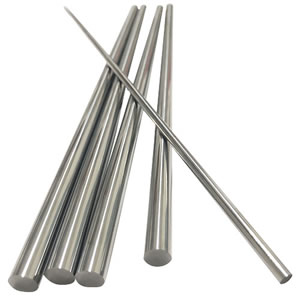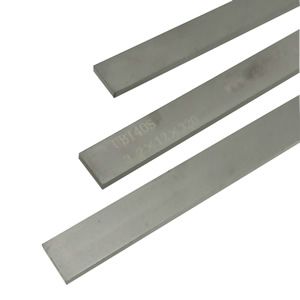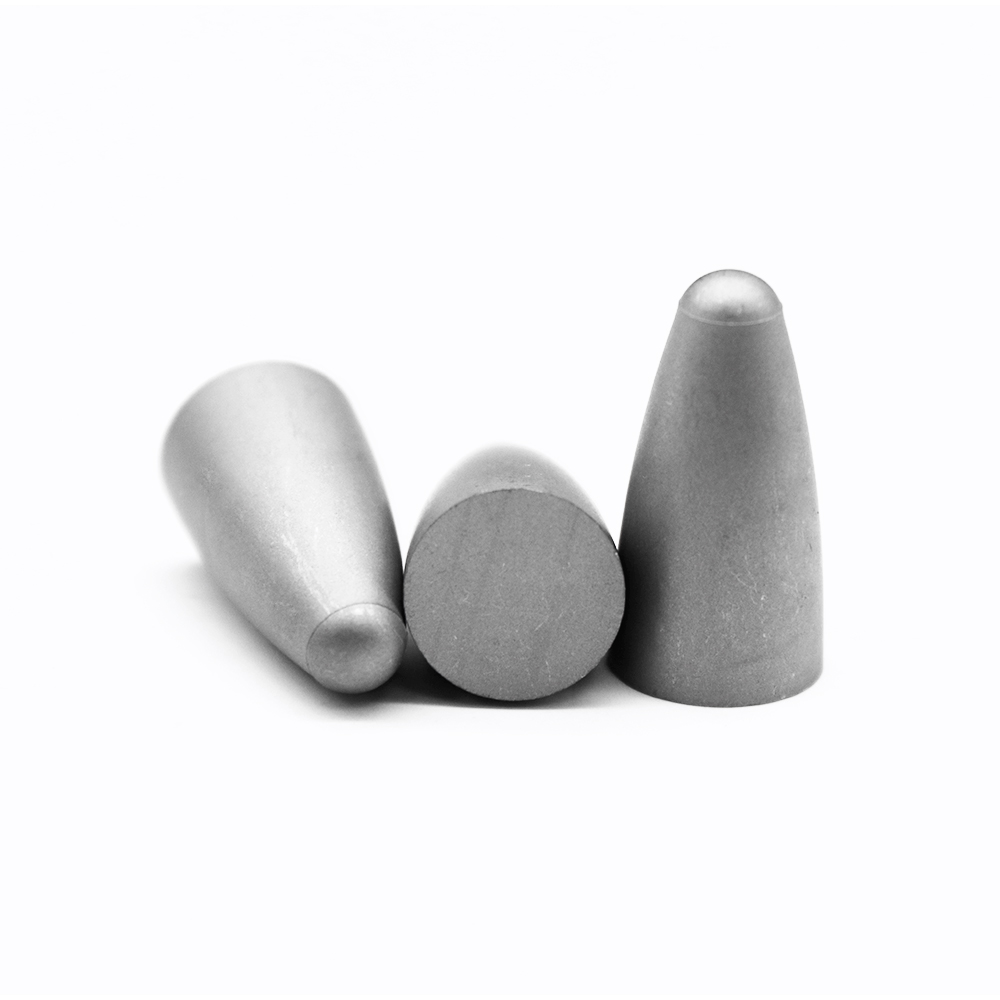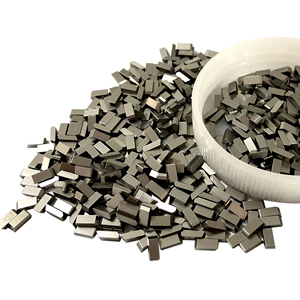Tungsteno karburuen egurrezko labanen gida sakona
Tungsteno karburuen egurrezko labanen gida sakona

Egurrezko lanak zehaztasuna, trebetasuna eta tresna egokiak behar ditu. Tresna horien artean, labanek funtsezko eginkizuna dute, batez ere egurra konformatzeko eta amaitzeko orduan. Tungsteno karburo labanak egurrezko lanetarako aukera nahiago izan da, aparteko propietateak eta errendimendua direla eta. Artikulu honek Woodworking-eko tungsteno karburuen labanen motak, ezaugarriak eta onurak aztertuko ditu.
Tungsteno karburoa tungsteno karburo eta kobalto aglutinaz egindako konposatua da, bere gogortasunagatik eta iraunkortasunagatik ezaguna. Fabrikazio tresnetan erabilitako material gogorrenetako bat bihurtuz. Gogortasun horrek bizimodu luzeago batera itzultzen du labanetarako, egurrezko lanetarako aukera eraginkorra bihurtuz.
Tungsteno karburo labanak hainbat motatakoak dira, bakoitzak egurrezko lan egiteko zereginetarako diseinatua. Hona hemen mota ohikoenak:
1. Labortzaileak
Laboratzaileen labanak ezinbestekoak dira zurezko zatietan gainazal leunak eta lauak lortzeko. Tungsteno karburoz egina, altzairuzko ohiko palak baino zorroztasun handiagoa mantentzen dute, ordezkapenen maiztasuna murriztuz. Labana mota hau oso erabilia da sartzeetan eta landarietan.
2. Router bit
Tungsteno karburo-aholkuekin ureztatzeko bitak ertzak sortzeko, zirrikituak sortzeko eta egurrezko guneak zulatzeko diseinatuta daude. Karburoaren iraunkortasunak diseinu korapilatsuak eta akabera leunak ahalbidetzen ditu, hobbyisten eta egurrezko lanbideen artean ezagunak bihurtuz.
3. Ikusi palak
Tungsteno karburo-zerreko palak ezin hobeak dira egur mota desberdinetan mozketa zehatzak egiteko. Jantzi beharreko zorroztasunak eta erresistentziak mozketa garbiak eta hondakin gutxiago bermatzen dituzte, funtsezkoa da kalitate handiko egurra lantzeko proiektuetarako. TCT palak disko zerra eta banda zerra dute.
4. Zizelak
Karburo-tipulatutako zizelek iraunkortasuna eta zehaztasuna eskaintzen dituzte zura zizelkatzeko eta konformatzeko. Lan zehatza egiteko bereziki erabilgarriak dira, egurrezko lanak xehetasun ederrak behar izanez gero zorroztasun maiz egin gabe.
Tungsteno karburo labanek hainbat ezaugarri bereizgarri dituzte, altzairu labana tradizionaletan abantaila bihurtzen dutenak:
1. Iraunkortasuna eta iraupena
Tungsteno karburoaren gogortasunak esan nahi du labana horiek erabilera zorrotza jasan dezakeela azkar tristatu gabe. Iraunkortasun horrek ordezko gutxiago eta denbora gutxiago izaten ditu egurrezko lanetarako, proiektuaren osaketa eraginkorragoa ahalbidetuz.
2. Zarantzaren atxikipena
Karburo labanek altzairuzko labanak baino denbora luzeagoak izaten dituzte. Zorroztasun hori funtsezkoa da mozketa garbiak eta akabera zehatzak lortzeko, egurrezko lanen kalitate orokorra hobetuz.
3. Beroarekiko erresistentzia
Tungsteno karburoak tenperatura altuagoak jasan ditzake bere gogortasuna galdu gabe. Jabetza bereziki onuragarria da abiadura handiko eragiketetan, non marruskadurak bero esanguratsua sor dezake eta material txikiagoetan higadura goiztiarra sor dezake.
4. aldakortasuna
Karburo labanak polifazetikoak dira eta egurrezko lanetarako hainbat aplikazioetarako erabil daitezke. Ebaketa, konformatzen edo amaitzen ari zaren ala ez, lanerako diseinatutako karburo labana dago.
5. Mantentze murriztua
Iraunkortasuna eta zorroztasuna Tungsteno karburuen labanen atxikipenak zorroztasun eta mantenimendu gutxiago eskatzen dituela esan nahi du pala tradizionalekin alderatuta. Mantentze-erraztasun hori abantaila garrantzitsua da egurrezko lanetan.
Woodworking-en tungsteno karburo labanak erabiltzearen abantailak
Tungsteno karburuen labanen abantailak beren ezaugarrietatik haratago hedatzen dira. Hona hemen egurrezko lanetarako funtsezko onurak:
1. Kostu-eraginkortasuna
Tungsteno karburo labanek aurrez aurre kostu handiagoa izan dezakete, haien iraupen iraunkorrak eta ordezkapen beharrak murrizteko aukera ematen dute epe luzera. Egurrezko lanek dirua aurrezten dute laban tristeak maiz ordezkatu beharrik.
2.Lanaren kalitate hobetua
Tungsteno karburuen labanen zorroztasunak eta zehaztasunak lan kalitate handiagoa laguntzen dute. Mozketa garbiak eta akabera leunak egur laneko proiektuen itxura orokorra hobetzen dute, bezeroei eta bezeroei erakargarriak bihurtuz.
3. Eraginkortasun handiagoa
Tresnak zorroztatzeko eta ordezkatzeko denbora gutxiagorekin, egurrezko lanak modu eraginkorragoan egin ditzakete proiektuak. Produktibitatearen igoera horrek lan gehiago eta irabaziak handiagoak ekar ditzake.
4. Operazio seguruagoa
Labana zorrotzek egur laneko praktika seguruagoak eramaten dituzte. Blaadek traba gehiago behar dute egurra mozteko, istripuen arriskua handituz. Tungstenoko karburo labanek zorroztasunari eusten diote, mozketa leunagoak eta seguruagoak ahalbidetuz.
5. Ingurumenaren inguruko gogoetak
Iraunkorreko tresnek erabiltzeak hondakinak murrizten ditu, egurra lantzeko ingurumena errespetatzen dutenak. Tungsteno karburo labanak aukeratuz, egurrezko lanek ingurumenean duten eragina gutxitu dezakete.
Zhuzhou Hobeto Tungsteno Carbide Konpainiak karboiko egurrezko lanbide desberdinak egiteko esperientzia du. Ongi etorri kontsultatzeak Carbide Wooodworking tresnak behar badituzu.





















